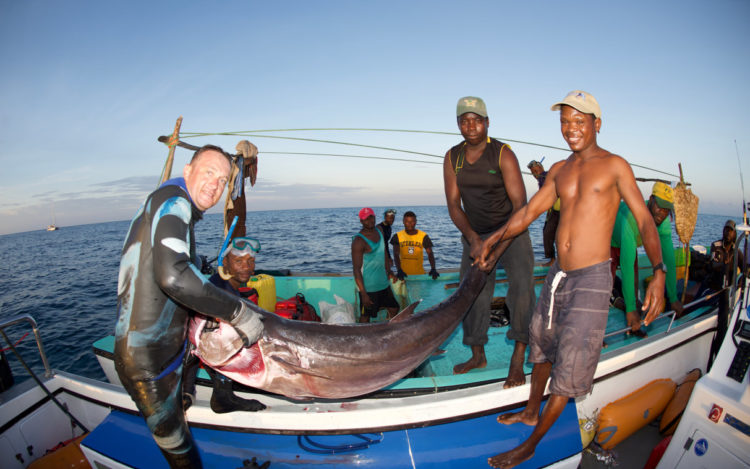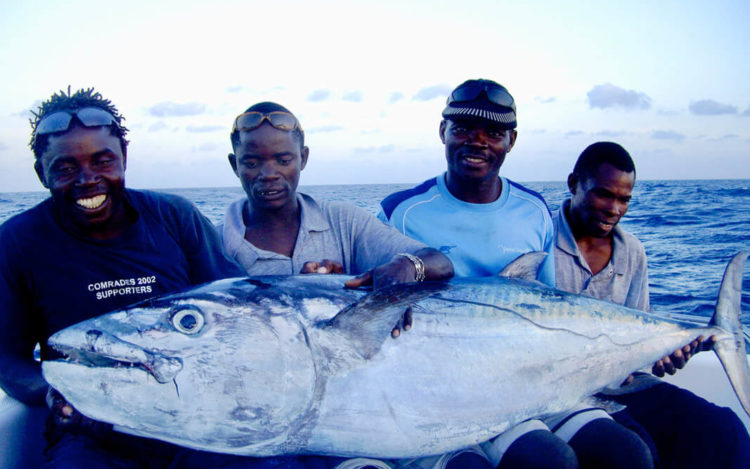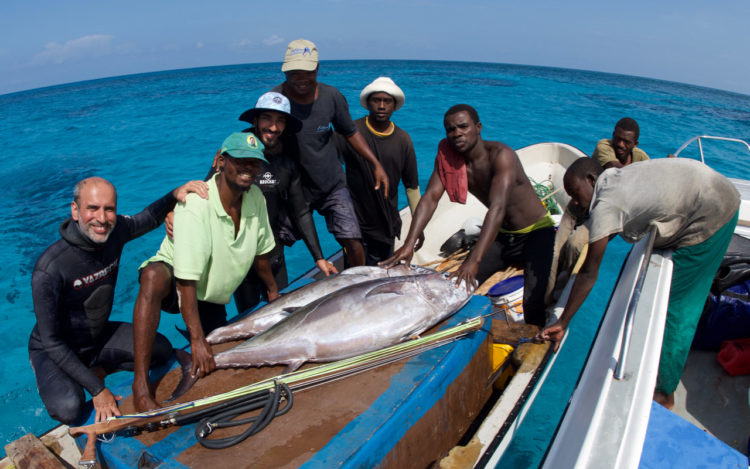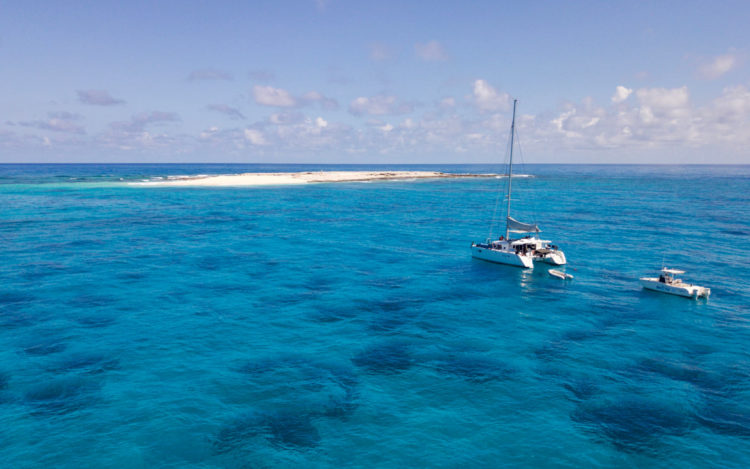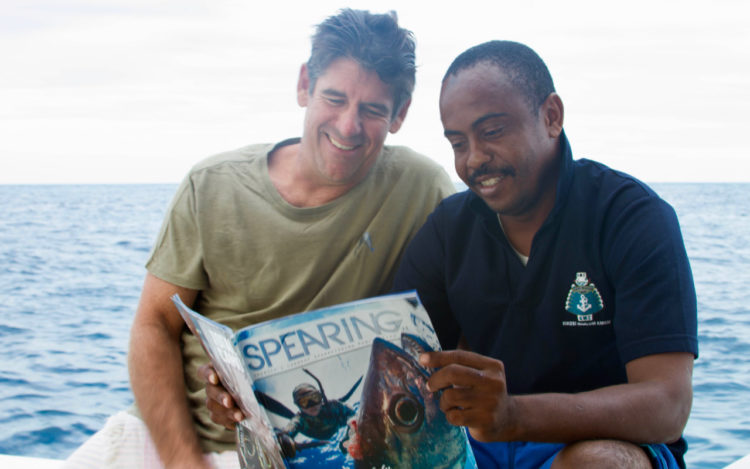
Spearfishing
Extreme Blue Water Ethical Spearfishing
Spearfishing is the most selective fishing method on earth. Limited by depth and time, no other fishing method allows the fisher to target a specific species and select a specific individual fish.
“We believe that as human beings we have been given the privilege of being planet Earth’s caretakers. This is a huge responsibility not to be taken lightly. In the organisation and carrying out of all our Spearfishing trips we make sure we do the best we can to have as low an impact as possible on our environment.” Eric Allard, Co-Owner/Head Guide – Extreme Blue Water Spearfishing
We make spearfishing, the most selective fishing method on the planet, even more selective than it already is! Due to our strict species target policy, our spearfishing trips are likely the most selective in the world. Our policy is to select for pelagic migratory species and a few bottom reef game species. Our philosophy is that resident reef species such as Groupers, Napoleon Wrasses, Trigger Fish, Parrot Fish and the likes have a very important role on maintaining the health of a reef.
They are also important to high value tourism such as Scuba Diving. On the other hand, aside from sport fishing and spearfishing, commercially sought after migratory species such as Wahoo, Spanish Mackerel, Tunas and the likes are not a high value species for tourism. These species are also much faster growing than demersal bottom resident species. Therefore, by selecting for migratory and a select few reef based species coupled with the low impact nature of spearfishing (on fisheries), we are maintaining the balance on the reefs while adding much higher value – to fisheries – of game fish than commercial fishing does.
Here is more about our philosophy on how to run our spearfishing charters;
Be Selective
Our aim is to hunt game fish, predators which are mainly pelagic, and to stay away from the vast majority of resident reef species. The latter are limited in numbers and reside over a specific area for more or less their entire lives; if you take one it will take time to replace that fish in that specific area. That is in contrast to most pelagics, which are migratory.
Pelagics are also generally found in bigger numbers than many resident reef fish. Hunt one or two and many more remain to move on to another area.
Click Here for a list of take and no take species.
Waste Nothing
We aim for and promote hunting of fish we eat. If and when we land more than we can eat, we either sell the fish and place its full proceeds into our EBWS Village Fund (that funds village projects), or donate the fish to artisan fishers fishing communities.
Either way, none of our catch is wasted, we receive no financial gain from selling any fish, and at least part of our catch ends up where it is intended; on our plate at the end of the day.
Be efficient
Hunting big fish requires us going offshore to remote locations where commercial fishing pressure is limited. Runs to dive sites can be as short as 5 nm each way, or as long as 30 nm each way. To improve efficiency while covering long distances in often choppy seas, our choice of boats and engines for our fleet are mono and multi-hulls powered by four stroke engines (as opposed to two stroke engines). On the other hand, our live aboard trips are generally done on sailing yachts, thus reducing the need to motor to such distant locations.
Vary locations
So as not to negatively affect any one location too much, we plan and spread trips along the entire area we operate in. In real terms, this means that our trips in East Africa are spread out over some 400 nm of coastline. By doing so, the actual number of days we dive any particular location is very limited, yet we remain busy throughout the main dive season.
Spearfish legally
All our sport spearfishing charters are run following the laws of the country in which the charters operate.
In addition to that, the company continue to promote the sport world wide and are pioneering the re-introduction of spearfishing, in the form of sport spearfishing, in East Africa.
Click here to view information on legality of spearfishing in our core areas.
- There is no commercial gain from the sales of fish speared during our trips.
- We spearfish for sport, which means at times we knowingly harvest more fish than we can consume ourselves. We understand this and only do so to share our extra catch with the local communities we operate within. What does this mean? It means that in far away offshore locations, we donate our extra catch to artisan fishers we encounter during our trip.
- Alternatively, we store the fish on board and when back on land it is then sold on behalf of – with 100% of the benefits going to – local communities. Any extra fish caught during our day trips from shore are also sold on behalf of the local communities we operate within with 100% of the proceeds going to them.

